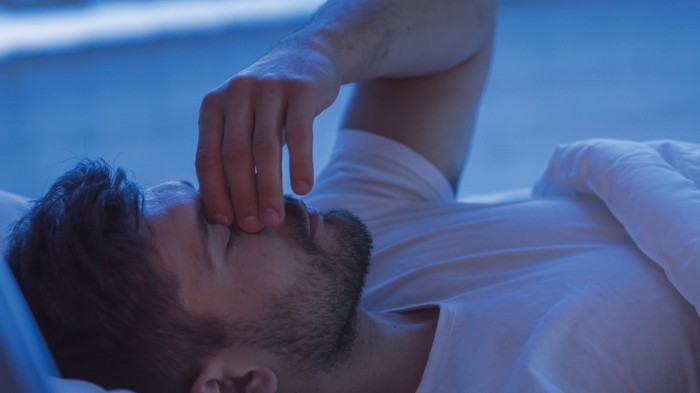Insomnia is often a sleep problem in which folks are not able to drift off or stay asleep. Most Australians experience insomnia at some stage in their lives, and about 10 percent folks have at the very least mild insomnia at any moment. It’s more established in ladies and the elderly.

Insomnia normally include:
difficulty getting to sleep
getting up when asleep inside them for hours trouble going back to sleep
getting out of bed prematurily .
Sometimes people experience the 3.
Some people experience insomnia for any small amount of time, as an example if they are worried or stressed. But sometimes insomnia is chronic (called chronic insomnia disorder), meaning individuals have trouble falling or staying asleep for at least A couple of months, as well as being impaired in daytime.
What are the signs and symptoms of insomnia?
People experience insomnia differently. Many of the the signs of insomnia are:
trouble drifting off to sleep
waking a lot during the night
getting out of bed prematurily . and will certainly get back on sleep
not feeling refreshed once you awaken
Insomnia can result in the next symptoms in daytime:
tension headaches
feeling tired or being too sleepy to accomplish normal activities
poor memory and concentration
being concerned about sleeping
feeling irritable or moody
being hyperactive, aggressive or impulsive
losing fascination with doing things
reduced energy and motivation
feeling sleepy when sitting quietly
What can cause insomnia?
Sometimes there’s no underlying reason for insomnia. This is known as primary insomnia.
Sometimes there is an underlying cause such as a overall health condition, anxiety, depression or sleep issue. This is whats called secondary insomnia.
Insomnia might be worsened by:
poor sleep habits (sleep hygiene)
substances including caffeine, nicotine, alcohol, amphetamines plus some prescription medicines
stress, brought on by work or financial problems, relationship issues or grief
medical issues, especially conditions causing pain, hormone changes (e.g. hot flushes and sweating during menopause), and breathing, urinary or flatulence
mental health problems – insomnia is usually a symptom of anxiety, depression or any other disorders
sleep problems, including obstructive sleep apnoea, circadian rhythm disorders due to irregular sleep patterns, restless legs syndrome and periodic limb movement
life stage – older people are more likely to have insomnia
shift work – people who work different shifts often tend not to sleep along with people who work set hours during the day
When should I see my doctor?
This is a wise decision to view your doctor if you are experiencing difficulty sleeping or else you are experiencing problems with your mood, feeling restless while having sex, snoring badly or awakening not feeling refreshed. Keeping a sleep diary is a superb approach to track symptoms, which you’ll want to tell your wellbeing professional.
We apply CBT-I to eliminate your insomnia problems quickly. Do you experience feeling tired because of insomnia? Do you hate gonna work? Are you feeling anxious inside your relationships? Buy your life last 6 sessions, and without chemistry. We greet you online, from the convenience of your cocoon, including on weekends for the outings. CBT-I (CBT-I), Cognitive-Behavioral Therapy for Insomnia, is surely an advanced scientific method with demonstrated effectiveness in the popular.
State-licensed psychologist (France), university degree in neuropsychology, certified hypnotist (France), Ecole Normale Superieure d’Ulm graduate, Columbia University visiting student.
To read more about French therapist go to this useful webpage

Be First to Comment